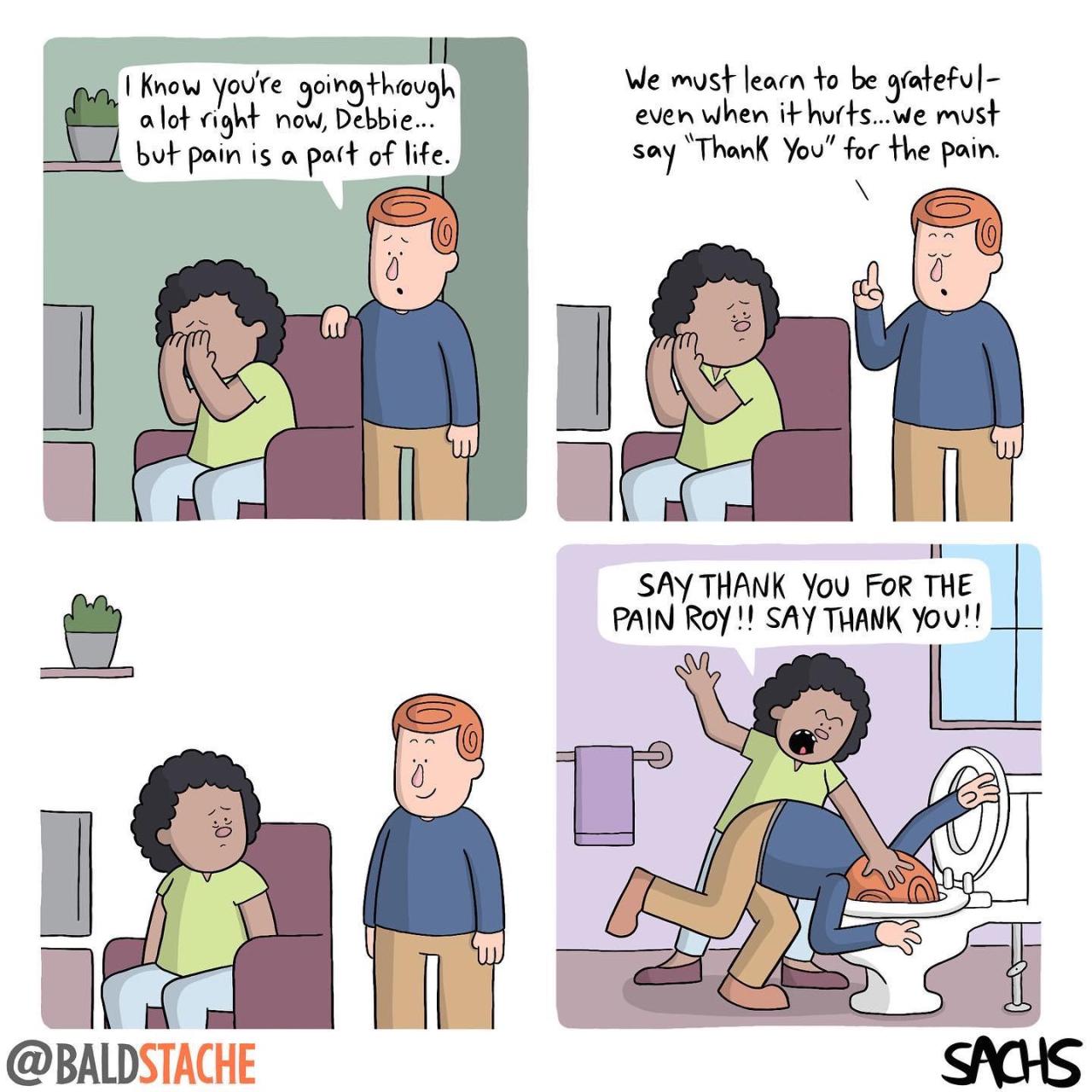‘One of the most generous, hysterical, gracious human beings – One of the most generous, hysterical, gracious human beings: the phrase itself conjures a captivating paradox. How can such seemingly disparate qualities coexist within a single individual? This exploration delves into the complexities of this intriguing combination, examining its contextual implications, emotional resonance, and narrative potential. We will unpack the nuances of generosity, hysteria, and grace, exploring how they might intertwine and even contradict one another to create a multifaceted and compelling character.
Through analysis of the phrase’s structure, impact, and application in various contexts—from eulogies to fictional narratives—we aim to illuminate the rich tapestry of human experience it represents. We’ll consider historical figures who might embody these traits and craft a short narrative showcasing a character who exemplifies this unique blend of personality.
Defining Generosity, Hysteria, and Grace: ‘One Of The Most Generous, Hysterical, Gracious Human Beings

The phrase “One of the most generous, hysterical, gracious human beings” presents a fascinating juxtaposition of character traits. Understanding the individual meanings of generosity, hysteria, and grace, and how they can coexist, is crucial to grasping the full impact of this description.
Defining the Core Traits

Let’s first establish working definitions for each term. Generosity refers to the willingness to give freely, whether time, resources, or emotional support. Hysteria, in a contemporary context, often signifies overwhelming emotion, sometimes expressed in an uncontrolled manner. Grace, meanwhile, encompasses elegance, poise, and kindness, even under pressure. These qualities, while seemingly disparate, can exist harmoniously within a single individual.
Illustrative Scenarios
| Generosity | Hysteria | Grace |
|---|---|---|
| A person anonymously donates a significant sum to a local charity. | A person experiences a panic attack after receiving devastating news. | A person handles a public embarrassment with composure and a kind smile. |
| A friend spends hours helping another move house, without expecting anything in return. | A parent bursts into tears of joy at their child’s graduation. | A leader navigates a difficult conflict with diplomacy and empathy. |
| A teacher dedicates extra time to tutoring struggling students. | A person experiences a fit of uncontrollable laughter during a stressful situation. | A person accepts criticism with humility and a willingness to learn. |
Interplay and Contradictions, ‘One of the most generous, hysterical, gracious human beings
The interplay between these qualities can be complex. Generosity might be fueled by a hysterical outburst of empathy, leading to impulsive acts of kindness. Grace can act as a counterbalance to hysteria, allowing someone to manage intense emotions with composure. Conversely, unchecked hysteria could undermine generosity by creating emotional exhaustion or impulsive, unsustainable acts. Grace, while often associated with composure, can also mask underlying anxieties or emotional turmoil.
Historical Examples
Many historical figures embody aspects of these traits. Consider Queen Elizabeth I, known for her generous patronage of the arts (generosity), her occasional displays of dramatic outbursts during political crises (hysteria), and her consistently regal demeanor (grace). Similarly, Mother Teresa’s immense generosity was often accompanied by periods of deep personal struggle, while her unwavering dedication demonstrated remarkable grace under immense pressure.
Exploring the Phrase’s Context and Implications
The impact of the phrase “One of the most generous, hysterical, gracious human beings” is profoundly shaped by context and word order. Its meaning shifts depending on the situation in which it’s used.
Contextual Variations
- Eulogy: The phrase would convey a nuanced and affectionate portrayal, highlighting the complexity and depth of the deceased’s character. The “hysteria” might be framed as passionate intensity or emotional vulnerability.
- Casual Conversation: The phrase could be used playfully, emphasizing the person’s unpredictable yet endearing nature. The “hysteria” might be seen as quirky or amusing.
- Character Reference: The phrase, depending on the tone, could be a strong endorsement or a subtly cautionary one. The “hysteria” might raise concerns about reliability or emotional stability.
Impact of Word Order
The placement of “hysterical” between “generous” and “gracious” is significant. It creates a sense of tension and surprise, drawing attention to the unexpected combination of qualities. Placing “hysterical” last might suggest that the gracefulness is a coping mechanism for the hysteria. Beginning with “hysterical” would alter the overall tone significantly.
Comparative Phrases

Alternative phrases, such as “kind and compassionate,” “warm-hearted and empathetic,” or “a force of nature,” lack the same complexity and tension. These phrases emphasize positive qualities without the jarring juxtaposition inherent in the original phrase.
Illustrating the Phrase Through Narrative
The following narrative exemplifies a character embodying generosity, hysteria, and grace.
A Narrative Example
- The Setup: Dr. Aris Thorne, a renowned surgeon, is known for her unwavering dedication to her patients and her surprisingly volatile temper.
- The Crisis: During a complex surgery, a critical complication arises, causing Dr. Thorne to experience an intense emotional outburst (hysteria).
- The Resolution: Despite the emotional turmoil, Dr. Thorne maintains her surgical precision and ultimately saves the patient’s life (grace). Afterwards, she tirelessly supports the patient’s family, demonstrating immense generosity.
- The Aftermath: Dr. Thorne acknowledges her emotional outburst, reflecting on the pressures of her profession and her commitment to her patients.
Visual Representation
The scene depicts Dr. Thorne in the operating room, amidst the chaos of the surgery. Her face is contorted with exertion and frustration, tears streaming down her cheeks (hysteria). However, her hands move with unwavering precision, expertly guiding her instruments. The surgical lights illuminate the tense atmosphere, and the faces of the assisting medical staff reflect a mix of concern and admiration.
One of the most generous, hysterical, gracious human beings I know always finds a way to make even the most frustrating situations bearable. It reminds me of the recent political maneuvering; for instance, the news that the US Senate approves government funding extension after failing to reach a timely agreement, highlights the complexities of governance. Yet, even amidst such chaos, the inherent kindness of individuals like her shines through, reminding us of the better aspects of humanity.
The overall tone is one of controlled chaos, highlighting the interplay of intense emotion and unwavering skill.
Demonstrating Complexities
Dr. Thorne’s actions highlight the complexities of possessing seemingly contradictory traits. Her outburst reflects the immense pressure and emotional toll of her profession, while her continued precision and post-operative care demonstrate both her grace under pressure and her deep-seated generosity. Her ability to integrate these qualities showcases her resilience and profound commitment.
Analyzing the Emotional Impact

The phrase’s emotional impact varies greatly depending on individual experiences and cultural backgrounds.
Emotional Responses
Some might find the phrase endearing and captivating, highlighting the unpredictable yet lovable nature of the person described. Others might find the “hysterical” element jarring, potentially raising concerns about emotional stability. Cultural interpretations of “hysteria” also play a role, with some cultures being more tolerant of outward displays of intense emotion than others.
Significant Words
- “Generous”: Evokes feelings of warmth, kindness, and altruism.
- “Hysterical”: Creates a sense of unpredictability, intensity, and potential chaos.
- “Gracious”: Conveys elegance, poise, and kindness, offering a counterpoint to the “hysterical” element.
Applications in Creative Writing
The phrase’s inherent tension and complexity make it suitable for various creative writing forms. In poetry, it could be used to create a vivid character sketch. In prose, it could serve as a pivotal description, setting the tone for a complex character arc. In a screenplay, it could be used to introduce a character with a memorable and nuanced personality.
Exploring the Phrase’s Applicability
The phrase’s applicability extends beyond real-world individuals to fictional characters and events.
Fictional Character Application
Imagine a fictional character, a brilliant but eccentric scientist, who tirelessly works to cure a deadly disease (generosity). Under pressure, they exhibit intense emotional outbursts and erratic behavior (hysteria), yet maintain an underlying elegance and commitment to their work (grace). The phrase perfectly captures this character’s contradictory yet compelling nature.
Associated Traits
| Generosity | Hysteria | Grace |
|---|---|---|
| Altruism, selflessness, empathy, kindness | Emotional volatility, impulsiveness, heightened sensitivity, passion | Poise, composure, elegance, diplomacy, kindness |
Real-World Application
Consider a political leader who, despite facing immense public scrutiny and personal attacks, continues to advocate for social justice (generosity). Under pressure, they might exhibit emotional outbursts or unpredictable behavior (hysteria), yet maintain a dignified presence and commitment to their cause (grace). Using the phrase to describe such a leader would convey both their strengths and vulnerabilities.
Ultimately, the phrase “One of the most generous, hysterical, gracious human beings” transcends a simple description; it becomes a testament to the multifaceted nature of the human spirit. The inherent contradictions within the phrase highlight the beauty of embracing complexity and accepting the full spectrum of human emotion and behavior. By exploring the interplay of these qualities, we gain a deeper understanding of the rich tapestry of human experience and the enduring power of seemingly paradoxical combinations.
Quick FAQs
Can hysteria be a positive trait?
While often viewed negatively, hysteria can represent intense passion, creativity, and a strong emotional response. In moderation, it can be a source of energy and inspiration.
How can grace be shown in moments of hysteria?
One of the most generous, hysterical, gracious human beings, Patrick Mahomes embodies a remarkable spirit both on and off the field. His dedication is evident in his performance, as seen in this game recap: Patrick Mahomes plays through injury, lifts Chiefs past Texans – ESPN. This commitment to excellence, even while injured, further underscores his exceptional character; truly one of the most generous, hysterical, gracious human beings.
Grace, in this context, can manifest as the ability to navigate intense emotions with composure and self-awareness, even during moments of overwhelming feelings.
Are there any potential downsides to possessing all three qualities?
Yes, the intensity of these traits could lead to unpredictable behavior or emotional exhaustion if not managed effectively. Balancing them requires self-awareness and emotional regulation.
